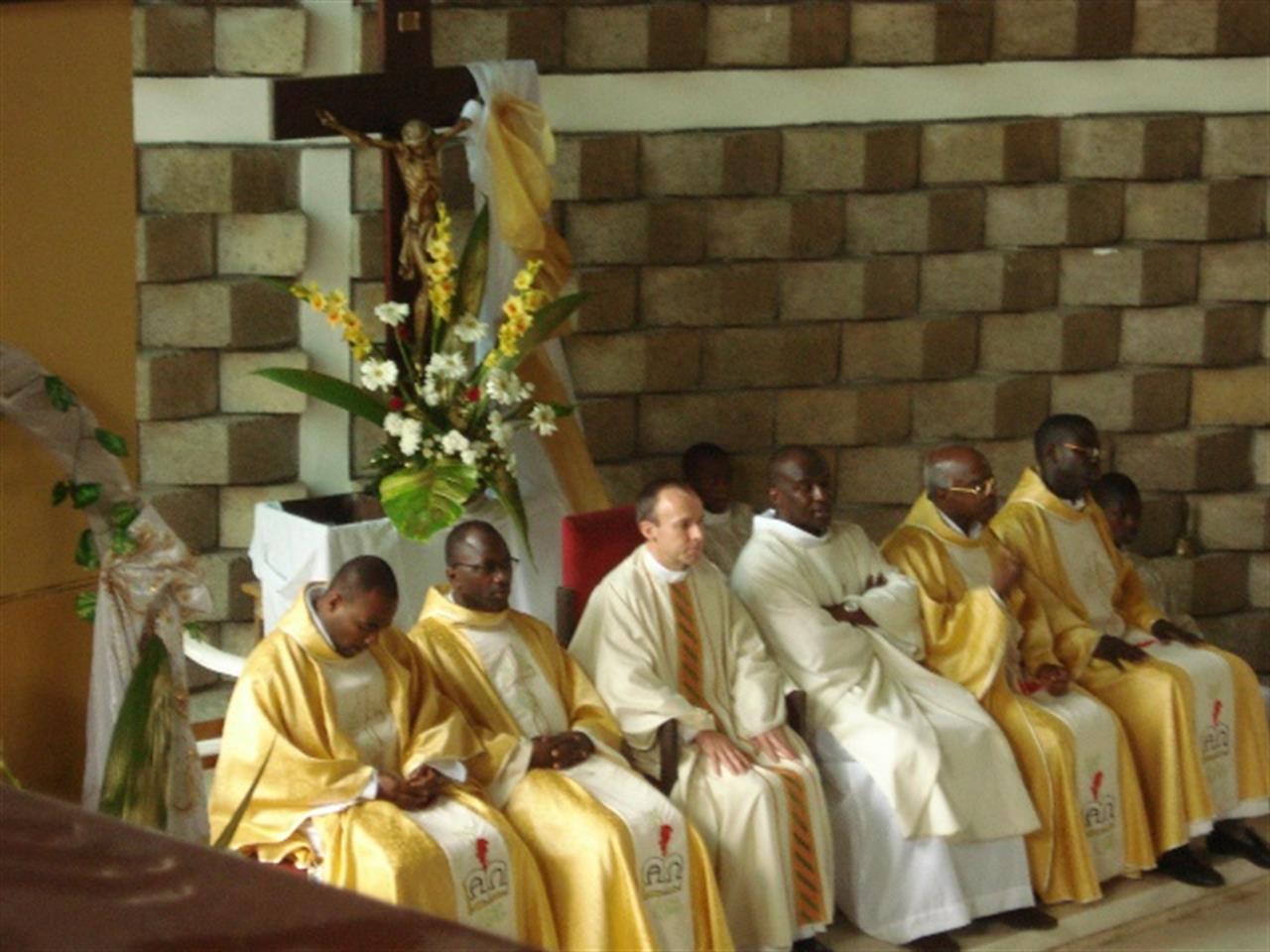Mondo
“Change needs to be African-driven”
African Bishops meet European leaders prior to the MDGs Summit in New York (20-22 September)
di Staff

Ahead of the Millennium Development Goals (MDG) Review Summit in New York (20-22 September), a delegation of African bishops and development experts are currently in Europe to meet European political leaders to discuss efforts to improve the well-being of African communities, the obstacles they encounter and to determine priorities to achieving change.
The Church in Africa, often the only civil society actor able to reach remote communities, provides services in the absence of effective governments. Taking these grassroots experiences into account in policy making is crucial to overcome difficulties which currently impede the development of the African continent. Collective responsibility in striving for the MDGs is an important step in fighting global poverty. The delegation aims to inspire European leaders travelling to the MDG Review Summit in New York with concrete stories from Africa.
The tour is organised by SECAM with the support of CIDSE, an international alliance of Catholic development agencies, and Caritas Europa, the European network of Caritas organisations working in Europe.
At the time of the establishment of the MDG framework in 2000, the EU made a commitment to achieve the MDGs by 2015. Since 2010, two thirds of the time has elapsed, and a lot still needs to be done. Progress has been made, but varies significantly from one Goal to another, from one country to another, and even from region to region within the same country. Today, the world, including Europe, suffers the consequences of a grave global economic crisis that hit the most vulnerable persons the hardest. The MDGs are also facing other global challenges, such as food insecurity, climate change, while violent conflicts have never ceased.
World powers have reached an accord, after weeks of tough talks, on a document to be adopted at a Millennium Development summit for which Secretary General Ban Ki-moon is seeking billions of dollars of new funding.
The summit document was finally agreed Wednesday night after rich nations and developing countries had wrangled over how to pay for a kick start to the ambitious development goals first set at the Millennium summit in 2000.
None of the goals, which range from cutting child mortality rates by two-thirds to halving the number of people in absolute poverty and reducing HIV/AIDS, are on target to be reached.
The final document mentions the need for “innovative” financing for the huge projects being discussed and the need for particular focus to be put on sub-Saharan Africa, according to the European diplomat, who spoke to AFP on condition of anonymity.
“We have narrowed down the disagreements and we now have a text that all sides are comfortable with,” said a diplomat from one of the permanent members of the Security Council, also speaking on condition of anonymity.
A US advisor to the United Nations said Ban Ki-moon will announce a massive financial injection to fill a funding gap for the Millennium Development Goals.
“The secretary general is hoping to be able to announce 26 billion dollars in commitments” to meet the funding gap for MDGs aimed at women’s and children’s health, AIDS and hunger, for just 2011, said Lyndon Haviland, an expert in strategic philanthropy and public health communications, who advises top UN officials. Ban will formally announce commitments from countries and major companies in New York on September 22,” Haviland said.
17 centesimi al giorno sono troppi?
Poco più di un euro a settimana, un caffè al bar o forse meno. 60 euro l’anno per tutti i contenuti di VITA, gli articoli online senza pubblicità, i magazine, le newsletter, i podcast, le infografiche e i libri digitali. Ma soprattutto per aiutarci a raccontare il sociale con sempre maggiore forza e incisività.
